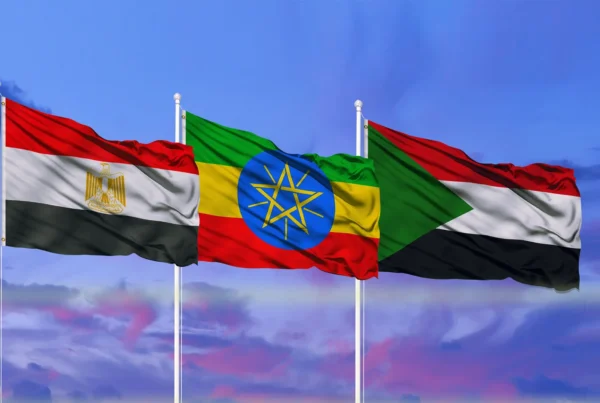The small, arid country of Djibouti is the site of fierce competition between global player. In a region of critical importance to global trade and the future of power on the African continent, China has now emerged as the premier foreign power in Djibouti. One cannot help but ask why the US and its western allies have not become more economically involved in Djibouti – one of the most strategically important areas on the planet.
Eimhin McGann
13 January 2025
Arabic version | French version | German version
Djibouti occupies an area of only 23 000 square kilometers, roughly half the size of Denmark, and 90% of that land is arid and uninhabitable. It has a population of just 1 million yet the strategic position of Djibouti has attracted the attention of all global powers.
Being comprised mostly of desert, Djibouti relies on Ethiopia for the import of foodstuffs, and landlocked Ethiopia relies heavily on Djibouti for access to ports. Furthermore, the African Union is headquartered in Ethiopia’s capital, Addis Ababa, so the Addis-Djibouti Corridor agreement makes Djibouti a very strategically important state in the region, and for Africa in general.
Additionally, 12% of all global trade, and 22% of European Union imports, pass through the Suez Canal in Egypt, and then the Gulf of Aden, the narrowest point in the Red Sea, which lies off both Djibouti and Yemen’s coasts. Either country could easily block passing trade.
This has led to huge investment from many different countries and companies, including the state-of-the-art Horizon Oil Terminal in Djibouti’s port, created as a public-private-partnership between Djibouti and ENOC, a Dubai-based shipping firm.
Foreign states have also established bases in Djibouti with the intention of protecting global trade from piracy. Despite a period of relative safety, there has been a recent resurgence. Since October 2023, the Houthi (Iranian-allied Islamist rebels in Yemen) have been launching attacks on ships in the Red Sea in retaliation for military actions in Gaza. The trade impact of Houthi attacks equates to over 200 billion USD in loss of goods, increased insurance costs, longer transport times, and highlights the need for continued naval patrols in the Gulf of Aden and the Red Sea leading up to the Suez Canal.
Due to this critical location for both African politics and global trade, Djibouti is the only state in the world that simultaneously hosts Chinese and American military bases, along with detachments of Spanish, French, Italian, German and Saudi Arabian troops. It also hosts the only Japanese military base outside of Japan. Furthermore, as the United States’ only permanent military base in Africa, Djibouti serves as the hub for US military actions in the entire region, including the Persian Gulf.
Due to its small size and poor climate, Djibouti relies heavily on its port to sustain its economy. Since 2017, China has taken advantage of this and following a flurry of Chinese investment and infrastructure deals, Djibouti’s foreign debt is now primarily with China, heavily skewing the balance of power between Djibouti and the global powers vying for influence there.
China’s approach in Djibouti is a common characteristic of their “Belt and Road Initiative”, a vast and eclectic series of diplomatic and trade agreements made between China and smaller developing countries across Asia and Africa. In return for providing these countries with infrastructure and investments, which ultimately embed China into their economic fabric, China receives numerous concessions on a whole host of initiatives, from free movement of Chinese personnel to exclusive trade rights, mineral rights and investment links to Chinese companies.
To this end, China has built a railway for the Addis–Djibouti Corridor. Through this, China benefits from access to the capital of the African Union, as well as resources from nearby South Sudan. China has also created the largest free trade zone in Africa between Djibouti and Ethiopia, effectively creating a dependence on Chinese capital and firms in the very heart of African political and economic power. This has greatly increased China’s influence on the rest of the continent.
During this years’ Forum on China-Africa Cooperation held in Beijing from 4 to 6 September 2024, Djibouti signed bilateral treaties with China in everything from trade to aerospace.
America pays 60 million USD per year for its military base in Djibouti, with other resident European powers paying similar amounts. But it is China who has taken the lead in providing infrastructure and investment deals, significantly altering the balance of power in Djibouti.
While China presence and involvement has been nothing but a benefit to Djibouti so far. Yet, it may only be a matter of time before China asks for the repayment of the huge loan. Should this happen, China could be granted ever greater concessions in an area critical to global trade and the global balance of power.







